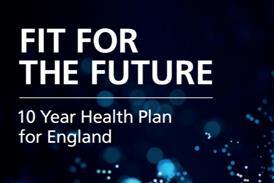- Less than a third of CQC inspectors believe pre-inspection data can confidently identify patient risk
- More than half have concerns the data does not “reflect” inspection findings
- CQC is reviewing how information is collected and analysed following concerns with parts of its new data monitoring approach
More than 70 per cent of hospital inspectors do not have confidence that Care Quality Commission data can identify risks to patients before a visit.
In a biannual CQC survey of inspection team members, only 29 per cent of respondents “agree completely or to a large extent” that they were given “enough good quality information” to assess service risks before an inspection. A further 37 per cent said they thought the information was adequate “to a moderate extent”.
CQC board papers also revealed that less than half of survey respondents, which included inspectors, specialist advisers and patient experts by experience, had strong confidence that pre-inspection data packs “reflected” what they found in an inspection. Almost a fifth did not think packs were accurate even to a “moderate extent”.
Almost half of respondents had moderate to severe concerns the approach to inspecting NHS acute hospital care lacked “consistency”.
The findings will raise concerns around the CQC’s proposed new risk based inspection approach. From April the regulator intends to adopt a “more targeted approach to inspections”, reducing the number of comprehensive inspections to only those it has “significant concerns” about.
As part of this approach the regulator is introducing CQC Insight, a data monitoring tool. However, the board papers said this was also “causing concern” due to delays with the development of some of the core technology. The papers also said collecting provider information needs to be “reviewed” and the CQC is reconsidering delivery timescales and approach.
A CQC spokeswoman said while pre-inspection information “plays a vital part in inspection planning… it isn’t intended to reflect absolutely everything we might find during an inspection”.
She added: “Now that we have completed our first round of NHS trust inspections we have a more detailed understanding of the quality of NHS care than ever before and we have recently consulted on our plans to use this understanding, together with improved systems for gathering intelligence, to move towards more targeted inspections for NHS trusts, while still being focused on what matters most to patients – whether services are safe, caring, effective, responsive to their needs and well-led.”
In primary care, the survey results were slightly better with 36 per cent of inspectors “agreeing completely or to a large extent” that pre-inspection information was good enough to accurately assess risk. Less than half of primary care inspectors thought pre-inspection data reflected what was later found on the visit.



























3 Readers' comments